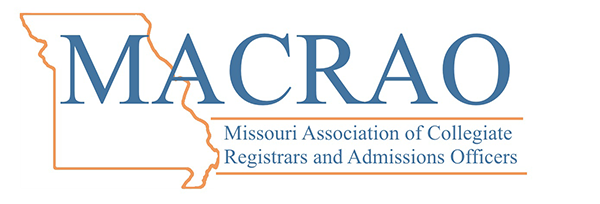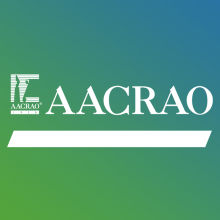The Missouri 2023 Legislative Session came to a conclusion on Friday, May 12. Below is a summary of the legislation that would most likely be of MACRAO interest that did (or did not) pass. The majority of the bills highlighted in our updates throughout the last few months ultimately did not pass. Of course, all passed legislation must still be signed or could be potentially vetoed by the Governor’s office, requiring further legislative consideration in a future veto session scheduled for this fall.
Budget Highlights
The FY2024 budget included a 7% core increase for all public colleges and universities. It also included an additional 2% core increase to be distributed to public universities through a yet-to-be-developed performance funding formula.
Legislation That Passed
SB 39 (https://senate.mo.gov/23info/BTS_Web/Bill.aspx?SessionType=R&BillID=44496)
Sponsor: Holly Thompson Rehder (R)
Synopsis: This act prohibits a private school, public school district, public charter school, or public or private institution of postsecondary education from allowing any student to compete in an athletic competition that is designated for the biological sex opposite to the student's biological sex as stated on the student's official birth certificate or other government record as described in the act. The act delineates what constitutes an acceptable official birth certificate. A private school, public school district, public charter school, or public or private institution of postsecondary education may allow a female student to compete in an athletic competition designated for male students if no corresponding competition for female students is offered or available. Any private school, public school district, public charter school, or public or private institution of postsecondary education that violates this act shall not receive any state aid or other revenues from the state. The parent or guardian of any student, or any student who is over eighteen years old, who is deprived of an athletic opportunity as a result of a violation of the act shall have a cause of action for injunctive or other equitable relief as described in the act.
SB 45 (https://senate.mo.gov/23info/BTS_Web/Bill.aspx?SessionType=R&BillID=44414)
Sponsor: Elaine Gannon (R)
Synopsis: This act modifies a number of different provisions, but the portion that applies to higher education is the “Missouri Employment First Act,” which ensures that “persons with disabilities receive the opportunity to understand and explore education and training as pathways to employment, including postsecondary, graduate, and postgraduate education; vocational and technical training, and other training.” It is not specifically defined what this means, but generally says that “all state agencies shall share data and information across systems” and “all such state agencies are encouraged to adopt measurable goals and objectives to promote assessment of progress.”
Legislation That Did Not Pass
Diversity, Equity, and Inclusion Bills
SB 410 (https://senate.mo.gov/23info/BTS_Web/Bill.aspx?SessionType=R&BillID=407984)
Sponsor: Andrew Koenig (R)
Synopsis: Establishes the “Do No Harm Act.” Requires that each institution of higher learning receiving state funding (along with some other health care areas) certify to the Department of Health and Senior Services that it does not and shall not require students, applicants, employees, contractors, vendors, volunteers or agents to ascribe to, study, or be instructed with diversity-equity-inclusion (DEI) ideologies or materials. Institutions of higher education violating this act shall not be eligible for state funding, grants, contracts, or any other benefit and shall repay the state treble the amount of funds they received as described in the act.
SB 680 (https://senate.mo.gov/23info/BTS_Web/Bill.aspx?SessionType=R&BillID=4934720)
Sponsor: Ben Brown (R)
Synopsis: Prohibits public institutions of postsecondary education from requiring the submission of diversity, equity, and inclusion statements. Public institutions would be prohibited from giving preferential consideration in admissions and employment on the basis of an individual’s unsolicited statement relating to a discriminatory ideology. An applicant/employee/student/contractor compelled to submit a DEI statement or is adversely affected by a violation of the act may pursue an action for injunctive or declaratory relief. An employee who violates the provision shall, upon the first violation, be placed on unpaid leave for the next academic year and be ineligible for employment at any other institution in the state during such unpaid leave. A second violation would result in employee termination and the individual would be ineligible for employment at any state institution for at least five years.
HB 75 (https://house.mo.gov/Bill.aspx?bill=HB75&year=2023&code=R)
Sponsor: Ann Kelley (R)
Synopsis: Prohibits public schools and institutions of higher education from requiring students to engage in any form of mandatory gender or sexual diversity training/counseling. Prohibits a variety of race or sex related concepts from being included as part of a course requirement.
HB 489 (https://house.mo.gov/Bill.aspx?bill=HB489&year=2023&code=R)
Sponsor: Ben Baker (R)
Synopsis: Requires medical institutions of higher education to submit annual certification to the Coordinator Board of Higher Education that the institution does not “require applicants or students to subscribe to Diversity, Equity, and Inclusion (DEI) ideologies.” Requires medical institutions of higher education to publish titles and syllabi for all mandatory courses, seminars, classes and training on a public online database, and prohibits institutions from conducting DEI audits or hiring DEI consultants. Requires medical institutions of higher education to require applicants to complete a standardized admission test and outlines academic standards for health care-related courses of student. Institutions wanting to alter standards of admission would require legislative approval. Prohibits such institutions from requiring their employees to receive DEI instruction.
HB 1196 (https://house.mo.gov/Bill.aspx?bill=HB1196&year=2023&code=R)
Sponsor: Doug Richey (R)
Synopsis: Provides protections against ideological discrimination in postsecondary education by prohibiting any public institution of postsecondary education from requiring any applicant, employee, student, or contractor to endorse discriminatory ideology as defined in the legislation. Prevents institutions from requiring a DEI statement from such individuals.
Repeal of Degree Granting Restrictions
SB 473 (https://senate.mo.gov/23info/BTS_Web/Bill.aspx?SessionType=R&BillID=913511)
Sponsor: Lincoln Hough (R)
Synopsis: Repeals provision restrictions related to the authority to confer research doctorates and first-professional degrees, degrees in podiatry and chiropractic and osteopathic medicine, and degrees in engineering.
HB 1189 (https://house.mo.gov/Bill.aspx?bill=HB1189&year=2023&code=R)
Sponsor: Dave Griffith (R)
Synopsis: Repeals provision restrictions related to the authority to confer research doctorates and first-professional degrees, and degrees in podiatry and chiropractic and osteopathic medicine.
College Credit Requirements for International Baccalaureate (IB)
HB 1173 (https://house.mo.gov/Bill.aspx?bill=HB1173&year=2023&code=R)
Sponsor: Maggie Nurrenbern (R)
Synopsis: Requires in-state public educational institutions to grant undergraduate course credits for students who score 4 or higher on international baccalaureate examinations.
HB 1336 (https://house.mo.gov/Bill.aspx?bill=HB1336&year=2023&code=R)
Sponsor: Chris Brown (R)
Synopsis: Requires in-state public educational institutions to grant undergraduate course credits for students who score 4 or higher on international baccalaureate examinations.
Other bills
SB 136 (https://senate.mo.gov/23info/BTS_Web/Bill.aspx?SessionType=R&BillID=44466)
Sponsor: Karla Eslinger (R)
Synopsis: Modifies provisions relating to workforce development in elementary and secondary education. Includes a provision that all high school students would be required to submit the Free Application for Federal Student Aid unless they meet a specific exempt listed in the act.
SB 174 (https://senate.mo.gov/23info/BTS_Web/Bill.aspx?SessionType=R&BillID=44580)
Sponsor: Andrew Koenig (R)
Synopsis: Modifies provisions regarding the Sunshine Law and access to public records. Highlight includes changing the number of business days in which the request must be acted upon from 3 to 5. Also says “A public governmental body is authorized to close records that are related to email addresses and telephone numbers submitted to a public governmental body by individuals or entities for the sole purpose of receiving electronic or other communication.”
HB 687 (https://house.mo.gov/Bill.aspx?bill=HB687&year=2023&code=R)
Sponsor: Adrian Plank (D)
Synopsis: Requires publicly funded state colleges and universities to allow medical marijuana use on campus.
HB 1322 (https://house.mo.gov/Bill.aspx?bill=HB1322&year=2023&code=R)
Sponsor: Kevin Windham (D)
Synopsis: Installs a student voting member on college and university boards of curators, regents, or governors upon student body approval.
HB 1332 (https://house.mo.gov/Bill.aspx?bill=HB1332&year=2023&code=R)
Sponsor: Justin Sparks (R)
Synopsis: Creates a higher education endowment tax imposed at a 5% rate on the endowments on higher education institutions that 1) are affiliated with, or provide medical faculty to, any abortion facility, 2) offer specific medical residencies or fellowships that offer training in performing or inducing abortions, 3) support in any manner any abortion facility where abortions are performed or induces when not necessary to save the life of the mother, or 4) performs gender transition procedures on minor children or offers specific training in performing gender transition procedures on minor children. This would begin January 1, 2024. Additionally, if one or more institutions are subject to the tax, the state’s top rate of individual income tax is reduced by 0.17%.
Other Non-Missouri Legislature Items of Interest
New, Stronger Gainful Employment Regs Released from Inside Higher Ed. While most of the requirements are for post-secondary non degree programs and for-profit institutions, it appears there will be some reporting requirement changes for all institutions. The article provides the timelines for the proposed regulations being posted, the public comment period, and the proposed date of effect.
Update about Gainful Employment from the Midwestern Higher Education Compact (MHEC):
The U.S. Department of Education is expected to release proposed Title IV Certification Procedures regulations in May. The proposal will likely include an expansion of professional and occupational licensure-related responsibilities for institutions, with the possible need for institutions to ensure their programs meet all educational requirements for licensure. MHEC will host the Higher Education Licensure Pros LLC in the upcoming webinar Expanding Professional Licensure Responsibilities: What the Department of Education's Proposed Changes Mean to Your Institution. Learn about the proposed changes, the impacts on your institution, how to best prepare for the proposed changes, and your opportunities to influence the final regulations.
Wednesday, June 28, 2023
1:00 PM CST
Nathan Hoff ([email protected])
Brenda Selman ([email protected])
Stephanie Sullivan ([email protected])

